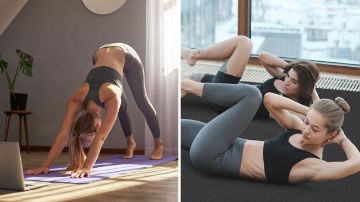Protecting seniors during extreme heat waves is critical, advocate says
Understanding the impact heat has on people of different ages could be the difference between “I’m uncomfortable in this heat” and fatal consequences, says a seniors advocate.
With record-breaking temperatures hovering due to the El Nino phenomenon, concerns are rising about the safety of the ageing population during heat events.
A report released this week in the journal Nature, said last year’s devastating heat wave in Europe resulted in more than 61,000 deaths with more than half of those deaths in people over the age of 80. In 2021, the British Columbia Coroners Service, reported nearly 600 people died due to extreme heat during the summer, and 91 per cent of those who died were 60 or older.
With Earth hitting its hottest days last week, and heat waves becoming more common in Canada, safeguarding seniors from the dangers of extreme weather is becoming a critical priority.
One way to do so is by doing wellness checks.
Isobel Mackenzie, a member of B.C Seniors Advocate group, told CTV’s Your Morning on Thursday it’s important to check on seniors during high temperature events and recognize signs of heat strokes.
“Like if somebody is not normally confused and they become confused, if they're lethargic, certainly if they're vomiting or exhibiting other signs and symptoms like that you need to actually get them to the hospital as quickly as possible,” she said.
Accessing cooling centres is another alternative, however, Mackenzie said this comes with some challenges for seniors.
First, there’s a lack of knowledge about these centres’ locations and hours since most seniors are not on social media, explained Mackenzie. Accessibility and transportation also play a key role.
“I think we need to remember that for many of us the ability to go down to the cooling centres, go to the mall, go to the swimming pool, it's all fairly accessible for us, but for older people, the mobility ability to get there is difficult,” she said.
Mackenzie said heat waves become more deadly when temperatures rise inside the house. For vulnerable people this could mean two things, they need to find somewhere to potentially stay while the peak of the heat recedes, or invest in a cooling system such as an air conditioner or heat pump.
Last month, the B.C. government announced it will provide $10 million to BC Hydro to expand its Energy Conservation Assistance Program to include free, publicly funded portable air conditioners for people who are medically vulnerable and have low incomes.
“We need to remember this is not going to be a solution for everyone everywhere,” Mackenzie said, adding some places don’t have the ability to install an air conditioner due to the window’s layout or the maintenance capacity.
Air conditioners could also increase the electricity bill.
To encourage people to time when their AC turns on, there are incentivised programs, such as Peak Perks in Ontario where residents get rewarded for saving energy and reducing their AC use on the hottest summer days in the province.
The federal government also suggests calculating how much your overall energy usage costs are before buying a new unit of any kind.
RISKIN REPORTS
CTVNews.ca Top Stories

BREAKING Czechia scores late to eliminate Canada from world juniors
Jakub Stancl scored his second goal of the game with 11.7 seconds left in third period as Czechia survived a blown 2-0 lead to defeat Canada 3-2 and advance to the semifinals at the world junior hockey championship on Tuesday.
Canadian couple lives on cruise ships — with no plans to return to land
With 75 countries and territories visited, a retired Canadian couple is making the most of life as they cruise full-time, from coast to coast. They're part of a growing trend of people opting to retire at sea.
Planes catch fire after a collision at Japan's Haneda airport, killing 5. Hundreds evacuated safely
A passenger plane and a Japanese coast guard aircraft collided on the runway at Tokyo's Haneda Airport on Tuesday and burst into flames. Transport Minister Tetsuo Saito confirmed that all 379 occupants of Japan Airlines flight JAL-516 got out safely before the plane was entirely engulfed in flames.
Israeli strike in Lebanon kills senior Hamas official Saleh al-Arouri: security sources
Senior Hamas official Saleh al-Arouri was killed on Tuesday night in an Israeli drone strike on Beirut's southern suburbs of Dahiyeh, three security sources told Reuters.
A missing person with no memory: How investigators solved the cold case of Seven Doe
Police specializing in missing people and cold cases have discovered the identity of a woman with no memory in one of the most unusual investigations the sheriff's office has pursued and one that could change state law.
Weight-loss drugs: Who, and what, are they good for?
Extraordinary demand, and high prices, for powerful weight-loss drugs will keep them out of reach in the coming year for many patients who are likely to benefit.
Woman who fell out of Edmonton city bus dies
A woman who fell out of an Edmonton city bus Friday has died, police said in a media release issued Monday.
Canada's 100 highest-paid CEOs broke new compensation records in 2022: report
Canada's 100 highest-paid CEOs broke records with their compensation in 2022, according to the Canadian Centre for Policy Alternatives.
Russian missiles hit Ukrainian cities, killing 5 and injuring almost 100, Kyiv officials say
Ukraine's two largest cities came under attack from Russian hypersonic ballistic missiles on Tuesday morning, killing at least four people and injuring almost 100, officials said.































